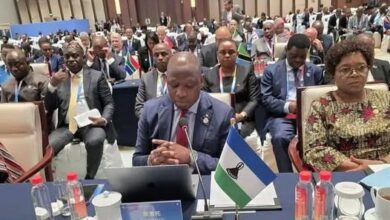24% of Girls in Lesotho Abducted into Child Marriage

Chobeliso, the practice of forcefully abducting young girls for marriage, remains a deeply entrenched issue in Lesotho, despite international efforts to eradicate child marriage. Recognized globally as a violation of human rights, child marriage continues to affect many communities in Lesotho, often justified by cultural, religious, and social norms.
According to the 2016 census, child marriage in Lesotho affects 24 percent of young girls, illustrating the widespread nature of this practice. In 2022 alone, this alarming statistic manifested in 57 young mothers giving birth under the age of 15, highlighting the severe and immediate impact of child marriage on the lives of these young girls. The persistence of such practices underscores the challenge of combating deeply rooted cultural norms that prioritize traditional customs over the rights and well-being of children.
Chobeliso is particularly prevalent in rural areas where cultural and religious traditions hold significant sway. In these regions, marrying young is often seen as a rite of passage or a way to secure a girl’s future. However, this practice exposes young girls to numerous risks, including physical and emotional abuse, health complications from early pregnancies, and the truncation of their education and personal development.
Mrs. Maseretse Ratia, the United Nations Population Fund (UNFPA) National Program Analyst in Adolescents and Youth, emphasizes the stronghold that culture and religion have in perpetuating early marriages. She notes that efforts to address child marriage must contend with these deeply ingrained beliefs, requiring a nuanced approach that respects cultural contexts while advocating for the rights of young girls.
The consequences of chobeliso are far-reaching and detrimental. Girls subjected to early marriage often face significant health risks due to early pregnancies, including higher rates of maternal mortality and complications during childbirth. Their education is frequently cut short, limiting their future opportunities and perpetuating cycles of poverty and dependence. Additionally, these young girls are more likely to experience domestic violence and have limited autonomy within their marriages.
While chobeliso remains a significant issue, efforts are being made to combat this practice. Organizations like the UNFPA are working to raise awareness about the harms of child marriage and promote the enforcement of laws that protect young girls. Educational campaigns targeting both rural and urban communities aim to shift cultural perceptions and highlight the importance of keeping girls in school and allowing them to reach their full potential.
Community leaders, educators, and health professionals are also being engaged to advocate against child marriage and support young girls at risk. By involving a wide range of stakeholders, these initiatives strive to create a supportive environment where the rights of young girls are respected and protected.
Moving Forward
Eradicating chobeliso requires a multi-faceted approach that combines legal enforcement, education, and cultural change. It is essential to address the root causes of child marriage, including poverty, gender inequality, and lack of access to education. Empowering girls through education and economic opportunities is crucial in breaking the cycle of early marriage and ensuring that they can lead healthy, autonomous lives.
The fight against chobeliso is far from over, but with continued effort and a commitment to upholding human rights, progress can be made. By working together, communities in Lesotho can protect their young girls, ensuring they have the opportunity to grow, learn, and thrive without the shadow of early marriage.
Join 'Lesotho News' WhatsApp Channel
Get breaking Lesotho news — delivered directly to your WhatsApp.
CLICK HERE TO JOIN



